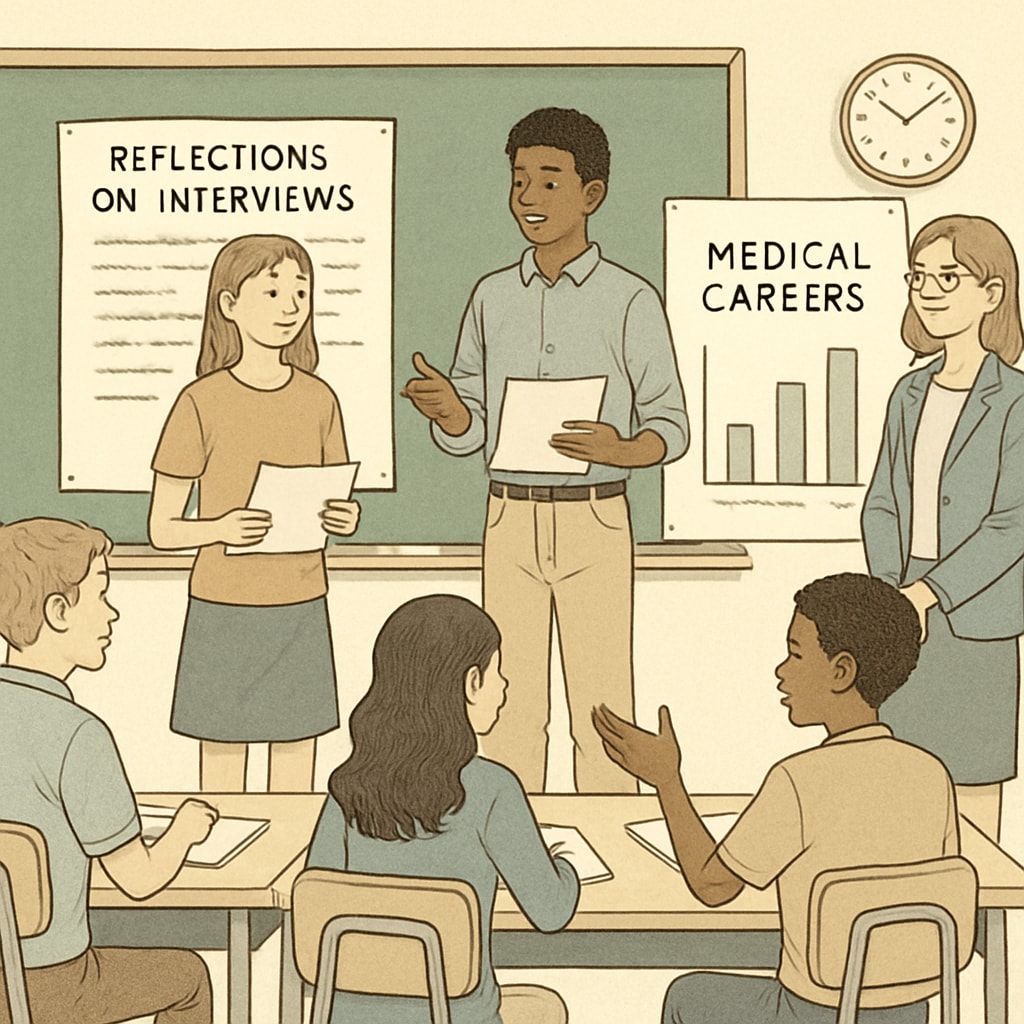Incorporating medical career exploration, school projects, and interview questions into the K12 education system plays a pivotal role in shaping students’ understanding of their future opportunities. By engaging in structured interviews with medical professionals, students gain invaluable insights into the realities of healthcare careers, develop critical thinking skills, and boost their social confidence. These activities not only inform future aspirations but also lay the foundation for lifelong professional growth.
Why Medical Career Exploration Matters in K12 Education
Career exploration during the K12 years is crucial for helping students navigate the often daunting question of “What do I want to do when I grow up?” Particularly in the medical field, exposure to real-world experiences can demystify the complexities of the profession. Students can learn about the responsibilities, challenges, and rewards of medical careers directly from those who practice them.
For instance, structured interviews with doctors, nurses, or other healthcare professionals allow students to understand the breadth of options available in the field. From surgery and pediatrics to medical research and public health, the opportunities are diverse and multifaceted.

Developing Critical Skills Through Medical Career Interviews
Medical career interviews not only provide career insights but also help students cultivate essential life skills. Here are some key benefits:
- Critical Thinking: Formulating thoughtful interview questions encourages students to analyze what they want to learn and how to ask it effectively.
- Communication Skills: Speaking with professionals improves students’ ability to engage in meaningful conversations, listen actively, and present themselves professionally.
- Decision-Making: Learning about various roles in healthcare supports informed decision-making regarding future education and career paths.
As a result, these interviews go beyond being mere academic exercises—they become stepping stones toward personal and professional development.
Structuring Effective School Projects Around Medical Career Interviews
To maximize the impact of medical career exploration, schools can design structured projects that guide students through the interview process. Here’s how educators can implement these activities:
- Pre-Interview Preparation: Teach students how to research the professional they’ll interview and develop meaningful questions.
- Conducting the Interview: Encourage students to focus on both the technical and personal aspects of the professional’s career, such as daily tasks, challenges, and motivations.
- Post-Interview Reflection: Have students summarize their findings and reflect on how the experience influenced their career aspirations.
These steps ensure that students not only gain knowledge but also develop a deeper appreciation for the effort and dedication required in the medical field.

Long-Term Impact of Medical Career Exploration
Engaging in career exploration activities, such as medical career interviews, has long-term benefits for students. According to a Britannica article on career development, early exposure to career possibilities helps students set realistic goals and align their educational pathways with their interests. For those interested in medicine, this could mean pursuing STEM courses, volunteering in healthcare settings, or planning for medical school.
Additionally, these experiences can inspire students to consider diverse roles within healthcare, such as medical technology, mental health counseling, or healthcare administration. By broadening their perspective, students are empowered to make informed choices about their futures.
In conclusion, integrating medical career exploration, school projects, and well-crafted interview questions into K12 education helps students envision their future while equipping them with essential skills. This approach not only supports academic and career development but also fosters a lifelong love of learning and self-discovery.


